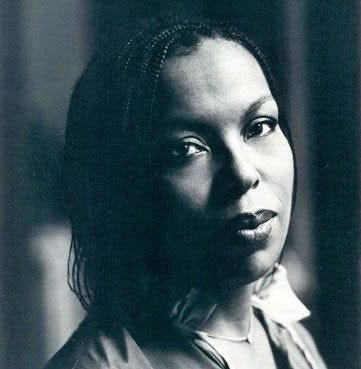While I caught many glimpses of Roberta Flack over the years in New York City, I only had the chance to meet and chat with her, ever so briefly, back in the 1990s when I was working as a publicist in New York City. I don’t remember what was said because the room was “heavy” if you will. A lot of big shots doing most of the talking and surely “wheeling and dealing” so I just hung back. I do remember not being “invisible” to her. And by that, I mean she “saw” me in that sea of big shots and nodded her head and smiled at me like, “I see you girl. How are you?” The energy I felt from her that day stuck with me whenever I heard her music or spied her in a restaurant or at an event over the years.
She spent the summer of 1968 playing piano Sunday brunch sets “from 2 to 6 at a little club on Capitol Hill where a lot of Senators came with their families,” and quit teaching high school to pursue her music career in earnest (she was originally from Black Mountain, NC) when she was then thirty-one years old. Prior to this, she studied music at Howard University. “I was taught by a person who was an expert when it came to Bach and music of the Baroque period, Scarlatti, Haydn, she excelled at that. She was a Black woman who taught piano at Howard University. She had studied in Europe on scholarship and her name was Hazel Harrison.” Harrison encouraged Flack to hold on to her love of playing classical music even as she expanded her repertoire.
“Nobody poured me into a gown. They didn’t put me into a mold. They didn’t fashion my face. They didn’t fashion my figure. I made it purely on talent.” ~ Roberta Flack
Luther Vandross himself often noted that he may not have had a solo career if it weren’t for his old boss. “I was a background singer for Roberta, and sometimes she would have interviews to do and she couldn’t come to sound checks. So, I would test out her microphone. One day, the lighting man was testing the lights, and the house was dark. She was sitting in the dark theater listening to me singing her songs and she came over and said, “You know, as much as I would love to have you continue singing background for me, I really think you ought to pursue your own career. You're getting too comfortable sitting on the chair singing “ooh and aah.” I want you to get your own record deal, so I’m lovingly firing you.” Ms. Flack tried to deflect credit for it over time (“Luther likes to say that I fired him, but I never really fired him. What I did was to encourage him to believe in his own ability to produce his first album”) but she was instrumental in Luther getting his first record deal with Epic Records in 1980.
Deniece Williams has also talked about how Ms. Flack was very generous with her early in her career. One anecdote she shared let me know that the Roberta Flack who “saw” me that day was the real deal. In the days before she smash hit, “Free,” Ms. Williams was a background singer. She was a part of Stevie Wonder’s “Wonderlove,” sang background vocals on her friend Minnie Riperton’s “Perfect Angel” and toured as a background vocalist for Roberta Flack. After one show, Williams and the other background singers went towards the bus to ride to the airport and Flack would have none of it. “No, no, no, the ladies should ride in the limousine with me.”
Of course, her unforgettable duets including “Where Is the Love” and “The Closer I Get to You,” with her friend and Howard University classmate Donny Hathaway further established her (and Hathaway) still stand the test of time along with just some of the amazing highlights from her illustrious career: Back to back Record of the Year wins at the Grammy Awards for “First Time Ever I Saw Your Face” (1972) and “Killing Me Softly with His Song” (1973). My favorite quote from her is definitely how I will always remember her. “Nobody poured me into a gown. They didn’t put me into a mold. They didn’t fashion my face. They didn’t fashion my figure. I made it purely on talent.”





